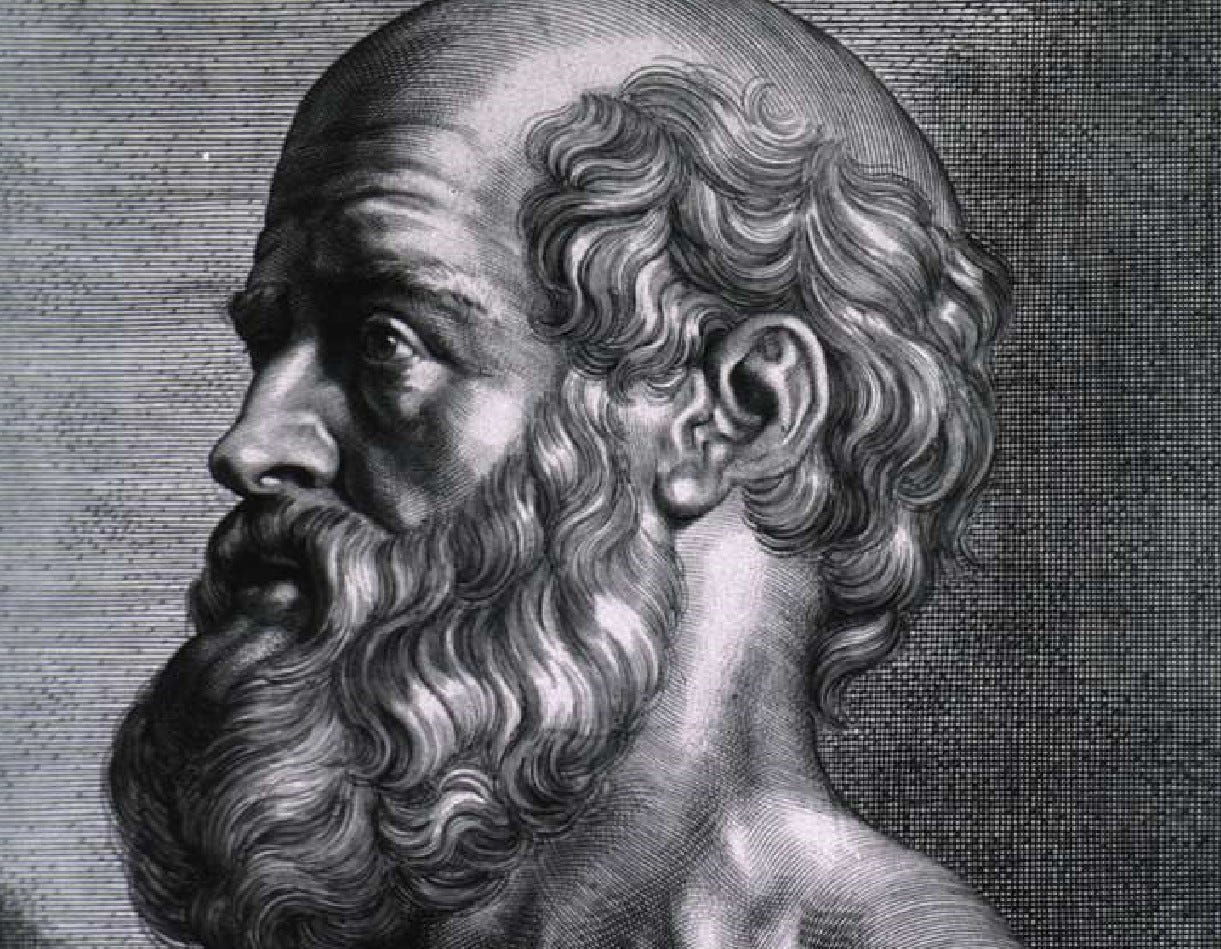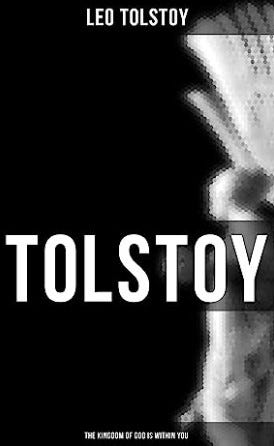Why the Hippocratic Oath Forbade Abortion—and Our Modern Society Does Not
The twentieth century was the most violent century in human history, and philosophy has a lot to do with why.
The Greek physician Hippocrates (460 – 370 BC) is considered the father of modern medicine in Western culture. It would be unusual to take an ethics class at a medical school in the United States and not here mention of the author of the Hippocratic Oath.
Many people believe the Hippocratic Oath begins with the words, “First, do no harm.”
It doesn’t. In fact, that sentence doesn’t appear anywhere in the Oath.
But Hippocrates clearly implies that he believed it was the physician’s duty to protect life, not claim life. Take, for example, the following passage:
I will not give a fatal draught (pharmacon), to anyone if I am asked, nor will I suggest any such thing. Neither will I give a woman means to procure an abortion.
Hippocrates apparently believed protection of life extended to the unborn, a fact that might surprise many people today. Americans tend to view abortion as an issue that pits Christians against non-Christians. Hippocrates was not a Christian of course (he lived four centuries before the birth of Jesus of Nazareth), but he appears to have been a religious person, as he opens the Oath with a promise to “Apollo the Healer” and other gods.
Here is the entire Hippocratic Oath:
I swear by Apollo The Healer, by Asclepius, by Hygieia, by Panacea, and by all the Gods and Goddesses, making them my witnesses, that I will carry out, according to my ability and judgment, this oath and this indenture.
To hold my teacher in this art equal to my own parents; to make him partner in my livelihood; when he is in need of money to share mine with him; to consider his family as my own brothers, and to teach them this art, if they want to learn it, without fee or indenture; to impart precept, oral instruction, and all other instruction to my own sons, the sons of my teacher, and to indentured pupils who have taken the physician’s oath, but to nobody else.
I will use treatment to help the sick according to my ability and judgment, but never with a view to injury and wrong-doing. Neither will I administer a poison to anybody when asked to do so, nor will I suggest such a course. Similarly I will not give to a woman a fatal draught (pharmacon) to cause abortion. But I will keep pure and holy both my life and my art. I will not use the knife, not even, verily, on sufferers from stone, but I will give place to such as are craftsmen therein.
Into whatsoever houses I enter, I will enter to help the sick, and I will abstain from all intentional wrong-doing and harm, especially from abusing the bodies of man or woman, bond or free. And whatsoever I shall see or hear in the course of my profession, as well as outside my profession in my intercourse with men, if it be what should not be published abroad, I will never divulge, holding such things to be holy secrets.
Now if I carry out this oath, and break it not, may I gain for ever reputation among all men for my life and for my art; but if I transgress it and forswear myself, may the opposite befall me.
Is the Oath still relevant today? It would not be unreasonable to think, as many do, that modern medical practitioners should not be bound by a nearly 2,500-year-old Oath dedicated to defunct gods.
Dr. Philip Hawley Jr., a physician and former Assistant Professor of clinical pediatrics at University of Southern California, contends that the Oath can and should still guide those who practice medicine.
The ancient master reaches across two and a half millennia to remind us that virtue and natural law—not scientific prowess—should set the boundaries of our choices.
Of Ends and Means
I agree with Dr. Hawley, but sadly most medical institutions do not. The Hippocratic Oath has been out of fashion for a very long time, as has its principle: First, do no harm.
I began to wonder why, and I think I have the answer, or part of the answer: philosophy. As a society, we’ve become a people who look first at the ends we seek. We’re all utilitarians now, to paraphrase a popular saying. And if an action achieves a desired end, it’s considered just—even if the action is rooted in violence.
The ancients saw abortion as wrong because it was a violent act, but today many support it because in their mind it serves a greater good—even though an innocent human life is claimed as the result.
I don’t make this comment to offend those who support abortion rights, but to make a point about ends and means. And it goes well beyond abortion. America’s sprawling empire is another example. It was built on the idea that violent means could be used to achieve something good: the spread of democracy and liberalism.
In his book In Search of Monsters to Destroy—which I purchased after reading Peter Jacobsen’s article—Professor Chris Coyne shows how badly empire has failed, and the steep price we’ve paid as a result (both home and abroad).
I think the ancients had it right. Actions are good or bad in themselves; they should not be judged by the good you expect them to achieve.
The older I get, the more convinced I become that we should reject the idea that violence can be used to improve society, and listen to voices like Jesus, Gandhi, Tolstoy, and others who taught the folly of violence.
The twentieth century was the most violent century in human history—and it’s not close—and I don’t believe it’s a coincidence that it happened just as the world began to see the utility of violence and ends as more important than means.
The great Leonard Read had it right in his 1969 book Let Freedom Reign.
"Ends, goals, aims are but the hope for things to come…They are not a part of the reality… from which may safely be taken the standards for right conduct. They are no more to be trusted as bench marks than are day dreams or flights of fancy. Many of the most monstrous deeds in human history have been perpetrated in the name of doing good—in pursuit of some 'noble' goal. They illustrate the fallacy that the end justifies the means."
A version of this article first appeared on Intellectual Takeout.






👏👏👏🙏🏻✌️🖖
An excellent article ... the end justifying the means is a slippery slope into the Abyss ... as a libertarian I could not agree more with the immorality and criminality of initiating the use of physical force (aka violence) against others.